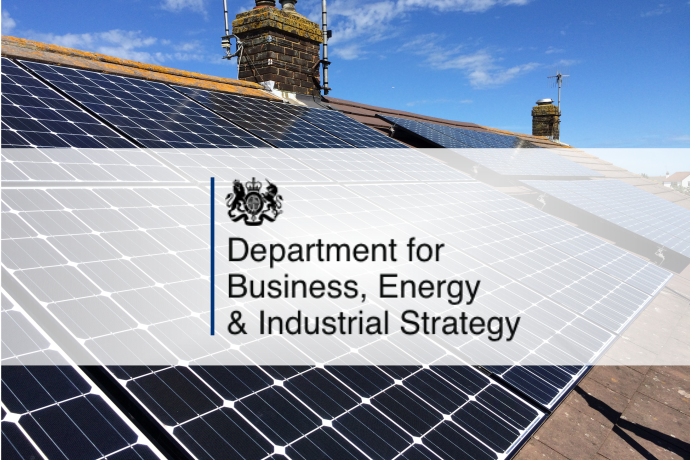Unit 1B, Keynor Farm
Sidlesham, PO20 7LL
8:30am - 5:00pm
Monday - 4:00pm Friday
Blog

BIES announces new export tariff plan
Following last years announcement in December that the export tariff was going to end on the 31st of March 2019, the government has announced a new export tariff guarantee.
In the consultation document released on the 8th of January the Department for Business, Energy & Industrial Strategy stated;
“To support the vision outlined by the Secretary of State and facilitate the transition to a smarter, cleaner energy system we intend to:
- Ensure small-scale generators are compensated by the market for the value of their exported electricity;
- Establish a framework for the sector which still provides room for the market to develop options promoting innovation and competition, in particular the growth of aggregators and a digital marketplace;
- Enhance the role of small-scale generators play in driving the smarter energy system, using smart meters and time of use tariffs, which allow more consumers to benefit from location and time specific electricity prices.”
Following a consultation and call for evidence published in July 2018 to identify the role small-scale generators play in clean energy growth the “Government believes there is merit in exploring possible arrangements for the small-scale low-carbon generation sector after the closure of the FIT scheme.
To that end Government is consulting on the introducing a mandatory supplier-led route to market: the Smart Export Guarantee (SEG).”
The Smart Export Guarantee
The Smart Export Guarantee (SEG) will see small scale generators paid for the energy that they export to the grid. This news has been welcomed by the solar industry which was expected to be hit hard by last years announcement, but has been received with caution.
The proposed SEG means that large energy suppliers (energy companies with more than 250,000 customers) will have to offer at least 1 tariff, any tariffs offered will have to be greater than zero, suppliers will not be eligible to recover any costs by charging consumers at the times of negative pricing. However suppliers will be able to determine the length of the contracts offered.
The structure of exactly how this tariff will work, and how to introduce it forms part of the consultation. BIES has said that “the smarter the better” is its vision for the tariffs.
Certain criteria will need to be met by small-scale generators, not hugely different form the Feed-In-Tariff, these include:
- All technologies currently eligible for the FIT tariff will also qualify for the SEG, with an upper capacity of 5kW.
- All energy exported to the grid must be metered, it cannot be deemed. Essentially there must be a smart meter installed.
- The meter used must be capable of metering half-hourly export amounts.
- The installation must comply with the Microgeneration Certification Scheme which is currently in place. This includes using MCS certified products, and installed by an MCS certified installer (all installations up to and including 50kW).
The consultation & industry reaction
The consultation is open until the 5th of March 2019. The full government document can be read here, and responses can be made online here, or emailed to futureofsmallscalesupport@beis.gov.uk.
Initially this comes as good news, although the finer details of the consultation will be key to its reception by the industry. Allowing suppliers to set the tariffs could lead to unfair remuneration of exported electricity, this should be set at a fair market rate.
Chris Hewett, chief executive at the Solar Trade Association says “Positively, the government again identifies the System Sell Price as accurately reflecting the market value of power spilled to the grid. However, the consultation acknowledges many of the market barriers we have raised with government and the associated costs.
Our worry is that these may impede the ability of suppliers to offer fair and meaningful rates, even though they may wish to. Customers are freely able to switch suppliers in a competitive market so where these costs fall remains vital to developing meaningful offers,”
Darren Crisp, Marketing manager at Wagner Renewables, says “Following last years news regarding the export tariff, this is the news that the solar industry has needed. Although there are a few bridges to cross and the finer details of how the SEG will work need to be fully discussed, this is a positive step in the right direction from the government and BEIS. We look forward to seeing how the consultation progresses.”
More reactions from the industry can be read on the Solar Power Portal website.




